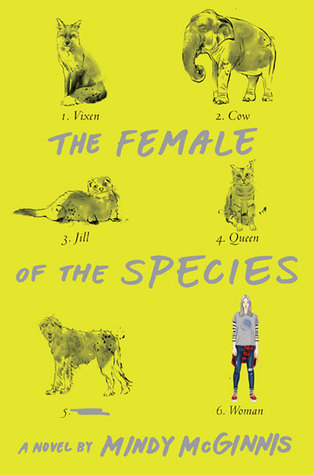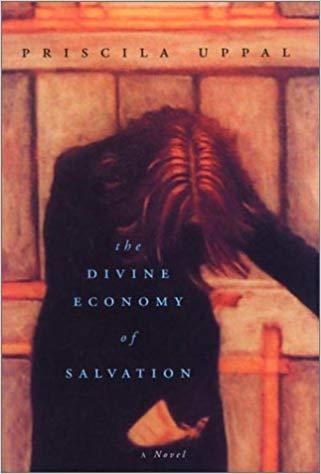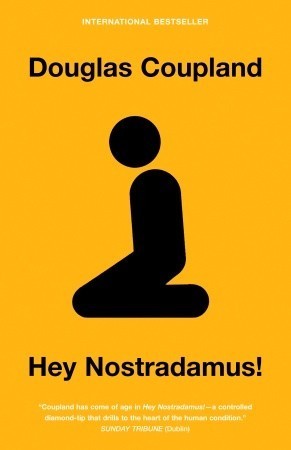#The Invention of Morel
Text

#novella#novellas#la invencíon de morel#the invention of morel#morel's invention#adolfo bioy casares#spanish language lit#translated lit#argentine lit#argentinian lit#20th language lit#have you read this short fiction?#book polls#completed polls
4 notes
·
View notes
Text

Read of The Invention of Morel by Adolfo Bioy Casares (1940) (103pgs)
Translated from Spanish
0 notes
Text

The Invention of Morel, Adolfo Bioy Casares (trans. Ruth L. C. Simms)
1 note
·
View note
Text
A guest post for the #1940Club takes on a book I love!!
As has become a tradition here on the Ramblings, Mr. Kaggsy once more offers up a guest post for our Club reading weeks! Here he explores a book which I’ve previously read and loved and so it will be interesting to see how our views of this particular title differ!!
La invención de Morel by Adolfo Bioy Casares (1940)
Translated as The Invention of Morel, by Suzanne Jill Levine (1964)
Vast amounts…

View On WordPress
1 note
·
View note
Quote
...we are always so far removed from death that we cannot imagine the shadows that must becloud it.
Adolfo Bioy Casares, The Invention of Morel
15 notes
·
View notes
Photo


Green room, Dining room - The invention of Morel
6 notes
·
View notes
Photo

The Invention of Morel by Adolfo Bioy Casares, translated by Ruth L.C. Simms, is a quietly brilliant science fiction novel. The kind that asks questions that make you want to read it again. The kind that leaves you just disquieted enough.
A man, a runaway from the law, finds himself on a supposedly deserted island. But it seems inhabited to him—by a group of friends who by some good luck seem to look straight through him more than once, who dance all night, one of which he falls head over heels for. But slowly he begins to realize that they're not...exactly there. But if Morel's experiment was truly successful, what are the implications? What would it mean for art—for the soul—for love itself?
This novella manages to be so many things in so few pages. A meditation on Malthus and the threat of running out of unpopulated space in our world. What immortality through photography, video—dare I say, social media—would actually produce (is that really you?). What it would mean to co-opt a life. And, of course, it is the ultimate toxic romance.
Borges considered it a masterpiece (if you’re a Borges fan and haven’t read this, drop everything and do it), and I already want to read it again, and it's just 103 pages. Check it out.
Content warnings for use of the g-slur, suicidal ideation, misogyny.
#the invention of morel#adolfo bioy casares#jorge luis borges#classic sci fi#argentine literature#argentinian literature#books in translation#sci fi in translation#reading while wandering argentina#my book reviews
14 notes
·
View notes
Photo

Jerzy Skarżyński (1924-2004) — The Invention of Morel by Adolfo Bioy Casares [illustration, 1975]
209 notes
·
View notes
Photo

Adolfo Bioy Casares, The Invention of Morel (1940)
6 notes
·
View notes
Photo

The Invention of Morel by Adolfo Bioy Casares
Lost: “Eggtown”
5 notes
·
View notes
Photo






Books read in August 2019
The Female of the Species by Mindy McGinnis
You know I really like McGinnis and I’m trying to read more repeat books by women (the majority of books I read are definitely written by women but I don’t always follow up and read more of them I mean). McGinnis writes very dark and macabre YA and that’s exactly the problem I have with her books. I am, alas, too old to really enjoy books by teenagers.
The only other book I read of hers, A Madness So Discreet, was a Victorian era novel that turned into a bit of a crime thriller that dealt with crime and sexual abuse. The Female of the Species follows along the same lines even though it is set in a small town in present day (or near present day) America. Alex Craft is a teenager who’s older sister was raped and murdered and (it’s not TOO much of a spoiler since it happens in the first few pages but anyway skip to the next paragraph if you don’t want spoilers) she ends up murdering her sister’s killer when the police do nothing.
This book is really great at examining how misogyny is weaved into contemporary culture without being too preachy about it but then it sort of develops a dumbass love story. I don’t know if this is McGinnis being constrained by her publishers or the conventions of YA or if she actually enjoys writing like that but it just flattens so much of the great writing she’s been doing. I honestly feel like she could be a huge breakout writer for adults if she just aged up her female characters a little and fully embraced the darkness of her writing but maybe that’s unfair, maybe she doesn’t want to go there. She’s still a great writer and someone I would have totally been an unabashed fan of if I was still 16. Unfortunately I’m not.
The Day That Went Missing by Richard Beard
I really liked this one! I recommend with reservations though, it’s about trauma and grief, a memoir about how Richard Beard’s younger brother died in a drowning accident when he (the brother) was 9 and how his very British family repressed it. And boy did they repress it!
The book starts when Beard is in his mid 40s and finally starts to ask questions about his brother finally realizing that he repressed even basic info like the day his brother died and when he was born. From there he investigates the accident like it was a crime, interviewing his family about their memoirs and trying to track down other people on the day. The writing he keeps fairly simple and that’s good because the emotion is pretty vivid. Just a wonderful tribute to the brother he lost and an examination of grief, repression and acceptance.
Garbo Laughs by Elizabeth Hay
I liked this one but I also feel like no one else would so I hesitate to recommend... Set in the sleepy neighbourhood of Old Ottawa South (in Ottawa, duh) Garbo Laughs is about a movie obsessed writer in her 40s and her family, friends and neighbours following their lives over about two years. The novel is a bit Cranston-esque. Everyone is very similar (everyone is writing a book of some kind, everyone loves old movies and gets each other’s references). There is also a bit of romance mixed in in that the main character’s husband and the main character’s best friend have a deep attraction to one another which is quite sweet and romantic. This is not overly plotty nor is it really character based. More about a specific neighbourhood. It’s very gentle and sweet though, a nice and easy read. I am going to try to read some more by Hay, her other books are more acclaimed, but this was a nice little amuse-bouche that did enough to make me intrigued as to what else she has to offer.
The Divine Economy of Salvation by Priscila Uppal
More Canadiana. This one was also set in Ottawa. Set in a Catholic all girls school The novel flips between a “contemporary” setting, circa 2000 around when the book was written and 25 years earlier. In the present Angela H., a middle-aged nun, receives a candle stick which forces her to delve into her mysterious past at an all girl’s school. The novel has everything I like, friendship between girls, boarding school drama, sex, murder etc but it never really goes anywhere or really delves deeply into any of these subjects. The book is around 400 pages long so it should have the time to explore everything and yet half of the book is set in the contemporary time where almost nothing happens. The resolution to who is shaking down the nun is really dumb too. I could definitely see this being a really cool book if it had some tweaks but as it is it’s kind of flat and peters out.
Hey Nostradamus! by Douglas Coupland
Even more Canadiana! Coupland is a pretty big writer in Canada but he always struck me as a little... bro-y so while I wanted to give him a shot it wasn’t my highest priority. Anyway I came across this book while poking around the 2003 Canadian novels page on wiki after reading Garbo Laughs and this sounded really interesting so I picked it up.
The book is loosely inspired by the Columbine massacre and follows the aftermath of a school shooting through one couple and how they react to the death. It starts out pretty good and strong and while Coupland isn’t the flashiest writer he’s a really engaging one. The novel is set into 4 parts, each part set in a different year from a different person’s perspective. And I really wish it hadn’t used Columbine or school massacres as a hook. It almost felt... incidental to what the book became as I read along. Really the book is more about mercy and what that means and maybe if I had heard the book pitched to me that way I would have liked it more.
So all in all okay.
The Invention of Morel by Adolfo Bioy Casares
Well I knew my luck would have to run out eventually. NYRB Classics is an imprint that only republishes books that have fallen out of print or works of literature that haven’t been translated into English yet. I’ve loved every single book I’ve picked up from them most of which I’ve read blind and it’s really changed how I view literature because there are so many staggeringly amazing masterpieces that just aren’t even heard of and languish in obscurity that they manage to bring back. I usually pick my books from them blind and had yet to be disappointed until now.
TIoM is a novella and Jorge Luis Borges wrote the introduction which calls it perfect. It actually made a lot of sense to me that Borges liked this because like a lot of Borges the concept is incredibly interesting and dynamic but like Borges it leaves me cold.
Set on a remote island it deals with a fugitive who lands on a remote island and is surprised to see some French visitors arrive and disturb his peace. It’s very short but it took me forever to read because I didn’t care for it.
#currently reading#The Female of the Species#Mindy McGinnis#The Invention of Morel#Adolfo Bioy Casares#Hey Nostradamus!#Douglas Coupland#The Day That Went Missing#Richard Beard
3 notes
·
View notes
Text
Recension av The Invention of Morel av Adolfo Bioy Casares

photo by Albert Renger-Patzsch
For some reason, the majority of books I read don't rely heavily on story, but rather on fleeting ideas. They tend to shun the concept of an actual beginning and end, and instead play around however they please. Still, some of my absolute favourites are the few ones that manage to interweave these ideas and concepts with an actual plot, with captivating characters and endings that makes me read the last pages over and over because I tried to swallow them all too quickly on the first time around, in an attempt to absorb as much as possible before the inevitable ending. Irrespective of how many books I’ve loved and been inspired by, those truly remarkable novels have been few and far between. Balancing a solid plot and and interesting speculation is hard, and that’s why books like The Invention of Morel are so very refreshing. In many ways, this is a classic mystery novel, and yet Bioy manages to transform it into something different.
The writing is simple, almost minimalist in places, but still expressive enough to make the marshes and sandbanks of the island become almost tangible through the pages. The summery island becomes beautifully uncanny in the hands of Bioy. I always admire writers that are able to paint nature as something so chaotic and with an almost carnal quality, and in The Invention of Morel this is done very well. Sometimes one might find traces of his mentor, Borges, in between the lines, but the overall style is very much Bioy’s own. There is a complex atmosphere lingering behind even the plainest of his paragraphs. The drawings of Norah Borges de Torre that are included in the NYRB edition help enforcing this feeling, conveying a sense of both beauty and psychological discomfort, frozen images stripped down to primitive representations of their absolute substance.

illustration from the book by Norah Borges de Torre
Bioy’s island and its secret carries an implied nightmare, but at the same time a promise of paradise. Our unnamed protagonist is sinking into a rabbit hole where he slowly loses control, over his surroundings, and eventually his own body and mind. The invention of the title brings this loss to not only him, but almost all the people involved. (SPOILER: Through his invention, Morel gains the possibility of ultimate control. By choosing what to record, he chooses what of him will remain, for eternity. But he also exerts this power over Faustine, capturing the parts of her life that can ensure him a sort of possession of her. If she won’t trust him (or, as implied, love him), he can catch her image, and possibly her soul, with him for all eternity. Not only this, but in the end the protagonist does the same; her image is violated twice by men inserting their own narratives into what is left of her identity. From the vantage point of Faustine, this is certainly a nightmare, even if she won’t ever know it. For Morel, this is paradise.) There are themes of eternity, possession, psychological control over the self, and the violation of this control. Themes that sometimes slide over into the territory of the reader, and into our own world.
The Invention of Morel definitely has the potential to keep on giving the reader more for every read, and its many themes will probably need more time than I was willing to give them on that feverish first read—through. This is a very solid novel. There is, however, something that more often than not troubles me about story-driven novels, and unfortunately The Invention of Morel is no exception. Stories like these have endings, tangible endings, ones where loose ends are all tied together to create a whole, a unit. Here, this presents a problem. The exceptional feeling of mystery and the absurd are kept alive through Bioy’s way of never really telling us too much, never showing the things we don’t need to know. But books like these usually need endings, and Bioy gives us one, forcing him to lift the obscuring veil. The wonder and mystery of the story is never completely dispersed, the absolutely stunning first two thirds of the book have made sure of that, but it does pale a bit in the unobstructed light. Tying all those loose ends together is all going a little too fast. Fortunately, The Invention of Morel is crafted well enough to not take too much damage from this, and definitely deserves a place among the great classics of its time. Just like Borges told us.
Utgåvan jag läste var översatt till engelska av Ruth L.C. Simms och släpptes 2003 av New York Review Books. Recensionen ligger sedan 2014 ute på mitt Goodreadskonto.
0 notes
Photo


VORONOFF, FROM THE PLANET OF THE HUMANS
a film project by Giovanni Cioni
6 notes
·
View notes
Photo



We can’t save ourselves, so we save our memories, which we also can’t save.
#Morel#Adolfo Bioy Casares#La invención de Morel#The Invention of Morel#science fiction#last year at marienbad#Argentina#images#memory#digital heritage
5 notes
·
View notes
Quote
I am a failure, and now I tell even my dreams.
Adolfo Bioy Casares, The Invention of Morel.
19 notes
·
View notes
